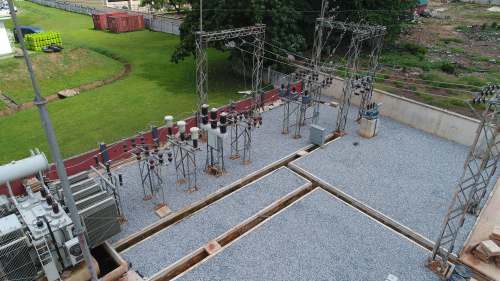Nigeria’s power sector suffered another setback in 2022, this was concluded with the current generation capacity which has collapsed from 6,336.52 megawatts that was recorded in 2021 to 5,346.82MW in 2022.
Investors King gathered that this development was revealed on Monday in the latest data which showed the electricity generation trend that was released in a document by Gencos (Generation companies) in Abuja, the Federal Capital Territory (FCT).
The data shows that the current annual loss to power generation companies has drastically increased to a total of N1.8 trillion. As the data highlight a fall in the average usage of utilized electrical power in 2022.
The numbers obtained from electrical power companies revealed that while the average amount of electricity utilized in 2021 was 4,118.98MW, higher than the 3,940.54MW recorded in 2022.
Investors King understands that between the years 2013-2022, the country’s average available power supply was epileptic between, 4000 Megawatts and 7,700 Megawatts and this began when the energy sector was privatized in 2013 under the Goodluck Jonathan’s administration.
The document further showed that the average utilized generation circled between 3,000 Megawatts and 4,000 Megawatts during the nine-year under review period (2013-2022), while unutilised generation revolved around 1,000 Megawatts and 3,700 Megawatts.
Joy Ogaji, the Executive Secretary, Association, Power Generation Companies, disclosed that the power sector only recorded a 100 Megawatts increase in power output yearly.
She further stated her doubts about the plans of the government to increase power output to 30,000 Megawatts in 2030 and emphasized her concerns with the current direction of power generation over the years, which one could easily foresee the future of electricity production in Nigeria.
In her words she said “Ogaji said, “100MW per annum growth. We can easily project in 20 years where we can be, aside from the political megawatts projection. Do we really have a market? If yes, what are the dynamics underpinning it?
“Is vision 2030 viable? At 100 MW per annum by 2030 we only need to add 700MW and we can foretell our target. Is 30,000MW projection realistic?”.
The document further revealed that the country’s diminishing power supply means that the average available power generation capacity in 2013, 2014, 2015 and 2016 were 4,214.32 Megawatts; 6,154.05 Megawatts; 6,616.28 Megawatts; and 7,039.96 Megawatts, respectively.
While in 2017, 2018, 2019 and 2020, the average available generation capacity figures were between the quantum of 6,871.26 Megawatts; 7,506.23 Megawatts; 7,381.67 Megawatts; and 7,792.51 Megawatts independently.
It was recorded that since 2018, the amount kept dropping as those of 2021 and 2022 were 6,336.52 Megawatts and 5,346.82 Megawatts apiece.
Whereas, for the average utilized generation, the Gencos’ report stated that in 2013, 2014, 2015 and 2016, the quantum of electricity employed was 3,183.51 Megawatts; 3,419.1 Megawatts; 3,606.05 Megawatts; and 3,212.02 Megawatts respectively.
The average utilized power in 2017, 2018, 2019 and 2020 was put at 3,599.33 Megawatts; 3,807.22 Megawatts; 3,782 Megawatts; and 4,050.07 Megawatts respectively.
For 2021 and 2022, the average quantum of electricity was 4,118.98 Megawatts and 3,940.54 Megawatts respectively, according to the numbers provided in the document released by the power generation companies (Genco).
It was estimated that over the course of seven years (2015-2022) a total amount of N1.8 trillion has been lost to power suppliers due to capacity payment loss.
The document also stated that in 2015, 2016, 2017 and 2018, the annual capacity payment loss was N214.93bn, N273.32bn, N236.47bn and N264.08bn respectively.
For 2019, 2020, 2021 and 2022, the figures for annual capacity payment loss were put at N256.97bn, N266.1bn, N159.86bn and N132.19bn respectively.

 Naira4 weeks ago
Naira4 weeks ago
 Naira4 weeks ago
Naira4 weeks ago


 Naira4 weeks ago
Naira4 weeks ago




 Naira3 weeks ago
Naira3 weeks ago
 Commodities4 weeks ago
Commodities4 weeks ago


 News4 weeks ago
News4 weeks ago


 Banking Sector4 weeks ago
Banking Sector4 weeks ago
 Travel4 weeks ago
Travel4 weeks ago




















